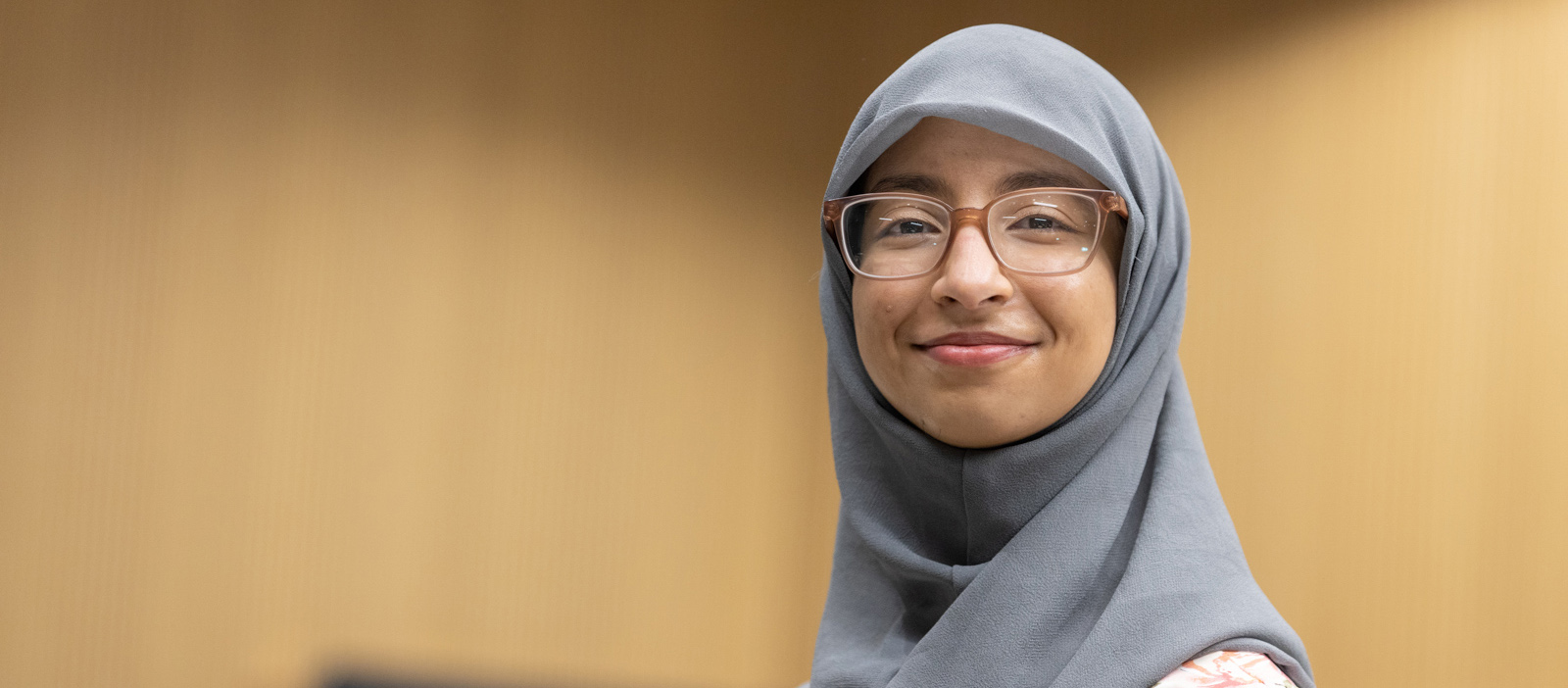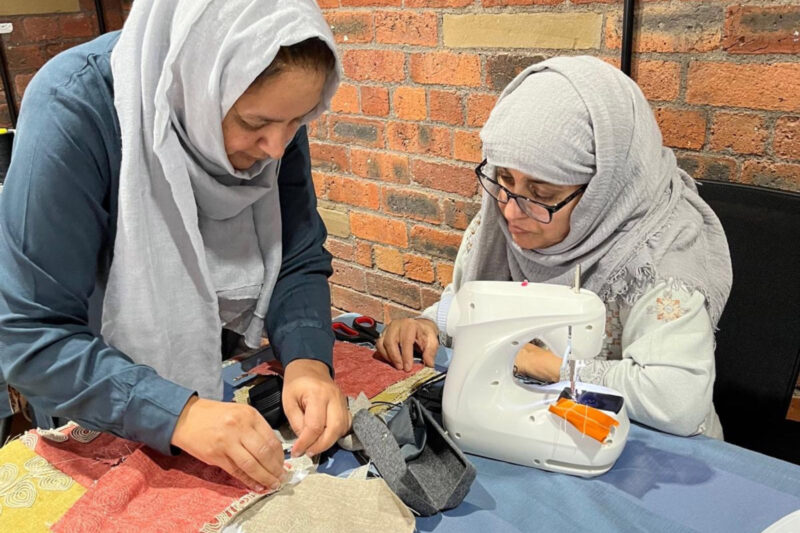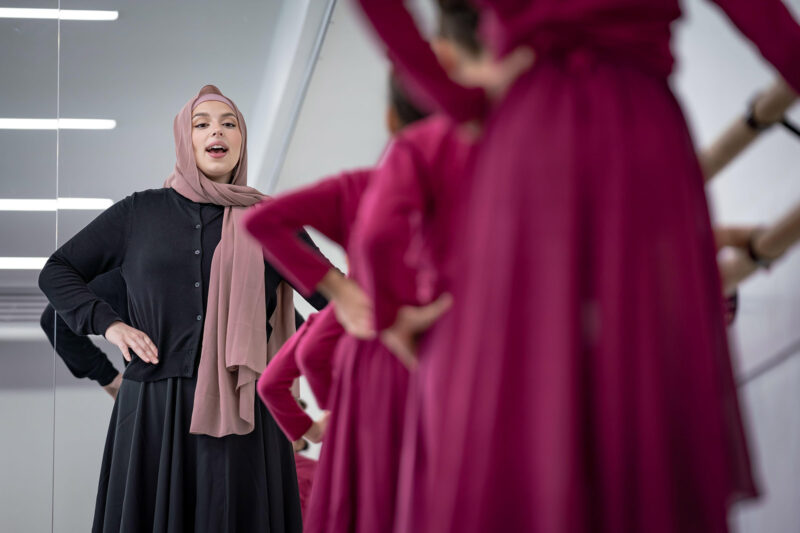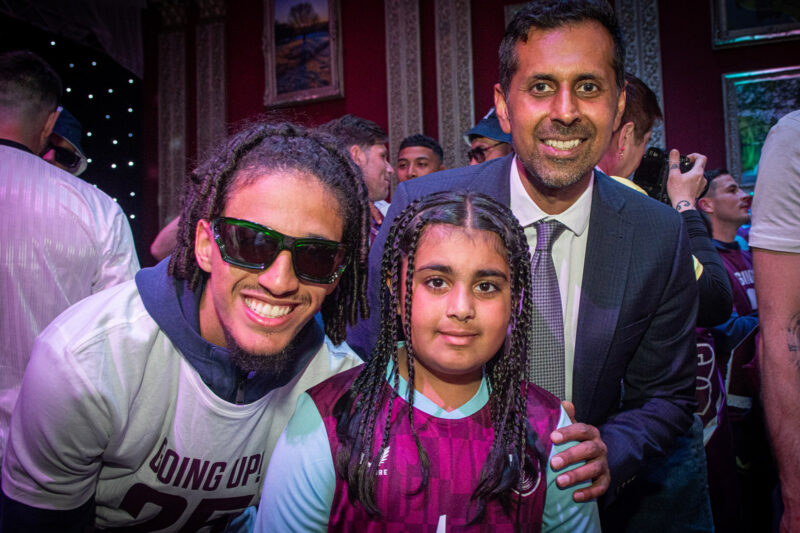
Fatima Sheriff Q&A: ‘It’s not always about knowing the answer. Sometimes it is about out-buzzing your opponents’
Photograph courtesy of Fatima Sheriff/Thomas Angus/Imperial College London
The first Muslim woman on a winning University Challenge team talks about navigating impostor syndrome and the unexpected buzzer techniques that can lead to victory
Fatima Sheriff, 25, made history in 2022 as the first Muslim woman to make the final of University Challenge. Sheriff, a master’s graduate in science communication at Imperial College London, and her teammates beat the University of Reading to deliver Imperial its fourth tournament victory.
Before appearing on the show, Sheriff, from Hitchin in Hertfordshire, had built up plenty of experience, taking part in online quizzes on Zoom and Discord during the pandemic. Her specialist subjects include literature, modern art, anatomy and women’s history.
This interview has been edited for length and clarity.
What made you want to compete on University Challenge?
I always watched it. It was one of the few TV shows that I watched live when I was younger. I’d high-five my sister when I got questions right — or my parents, who didn’t really understand what I’d just said, or what the question was asking. We all enjoyed it.
What was the process to get on the Imperial College team?
While studying at Sheffield University as an undergraduate, I went to the University Challenge trials and didn’t get very far. I tried again during my first week at Imperial College in 2020. The test was really hard and I was sure that I wasn’t going to make it through. When I got invited to the next trial — the “buzzer” trial — I still didn’t think I’d get in. I was just vibing and seeing it more like a re-enactment of my favourite TV show.
Unlike my teammates, I hadn’t been part of a quiz society before university and I’d never done buzzer quizzing. I came along, tried my best and buzzed as much as I could. Ultimately, I think I truly won my place on the team because I left a bag of books I’d bought in the room by accident. My teammates saw that I had some Audre Lorde and Jean Rhys in there, and I guess they thought it would be useful. They could tell I was a woman of culture!
What strategies did your team use to win the competition?
We had generations of quizzers from Imperial College, so we inherited knowledge from Brandon Blackwell and Conor McMeel’s team, who won the competition in 2020, and Michael Kohn, who was a semi-finalist the following year. They were there to help and guide us through the process. They gave us insight into how the show works behind the scenes, what the building was like and what the producers usually say to contestants. I found it helpful to study the way that Jeremy Paxman would ask the questions too, as there are patterns you can pick up which can help you out in matches.
Nobel prize winners — generally any prize winners — are a good place to start when you are learning. I learnt about all the Nobel prize winners in literature, physiology and medicine, because those were my domains. I taught myself art history by going to galleries. We also used flashcards and took part in online Quizbowls, an American format that resembles University Challenge.
Is there a secret to success in the competition?
It’s not always about knowing the answer to the question. Sometimes it is about outbuzzing your opponents or marking them on their strengths. If someone is a literature player and you know that, if you have an idea of what the answer might be, you have to hit the buzzer first. You also have to know what kind of questions each member of your team is going to answer.
How did it feel to be the first visibly Muslim woman on University Challenge?
I wasn’t the first Muslim to be on the show, but I might have been the first to wear a hijab. I was happy to give that representation. I received lovely messages from Muslim women who said they found me inspiring. I loved being that for them. There are not enough women in the quiz world, let alone Muslim women, so being that presence on such a public platform was something I was happy to do.
During the trials, I definitely felt some impostor syndrome, because I was a woman and because I was a Muslim. But that was entirely my own projection. When you’re putting together a University Challenge team it has to be diverse, otherwise you’re unlikely to get on TV, so I assumed that I was initially there so Imperial could compete. My friends and teammates spent months convincing me that I was on the team because I was interesting and could learn quickly. I didn’t really believe it until I was in training, and now I’ve really carved out my space in the quiz community.
How important is it for women to be represented in the quizzing world?
The Imperial College Quiz Society was one of the only places I had been to that was a male-dominated environment. That’s the reason why I really try to help women who want to do quizzing. It’s definitely harder for women to deal with the different social cues and dynamics of hyper-competitive men. I think for women who do quiz, it’s comforting to know there’s someone who understands what they might be going through on off-days, or to build up their confidence. As you can imagine, “leap of faith” buzzing comes more easily to men than to women, who often feel like they need to be 100% sure they know the answer.
Have you competed in quizzes since University Challenge?
Before the end of University Challenge, I took up the role of president of the Imperial College Quiz Society. It was funny — just before we filmed the final match, we were writing trial questions for people wanting to try out to be on the next series. I’m now helping to train the new Imperial team. I like to call it “quiz mothering”.
I’m still competing in the online quiz circuit, which is pretty big. There’s an Only Connect league and my team, the Zoomsbury Group, won that, against 64 other teams, quite recently. I’ve also been involved in testing some new quiz shows that may air on the BBC soon, which has been really fun.
 Newsletter
Newsletter













